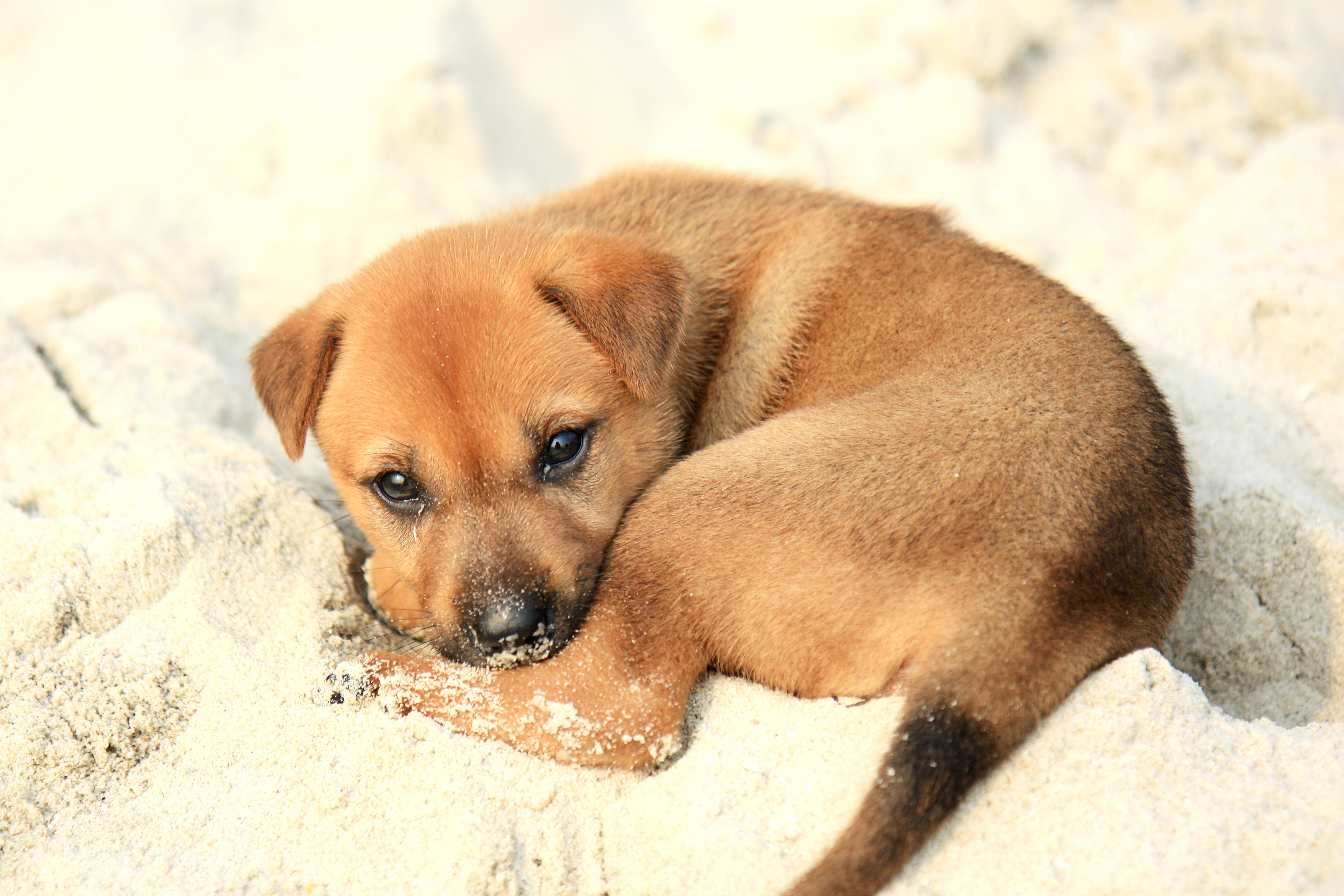(webvet.com) The goal of housetraining is to encourage and reinforce elimination in a desirable area for your new puppy. Your new puppy needs to learn that it must eliminate outdoors. Indoor accidents set the process back and allow bad habits to form.
With a consistent routine, most puppies can be trained within a relatively short time, sometimes only days to weeks. This does not mean that a newly trained puppy can be trusted to wander throughout the home without eliminating. You will need to remain vigilant until your puppy is completely house trained.
Early in the process, maintaining a strict routine is helpful. Take your puppy outdoors through the same entrance and take it to the same location outside. Over time, the smell of this location will encourage your pup to return there to eliminate. If you do not have immediate access to the outdoors (eg, high-rise living) or your schedule requires that you leave your pet for long periods, you can “paper train” your pup to a particular area indoors. However, once an indoor site has been established, it will be more difficult later on to train your pet to eliminate outdoors.
Most puppies need to eliminate every 2-3 hours during the day, and many need to go out once or twice during the night. With each passing month, you can expect your puppy to last a little longer between eliminations.
A key to successful house training is to take advantage of your pup’s natural elimination patterns. Puppies have a strong urge to eliminate after sleeping, playing, eating, or drinking, so take your puppy to the selected elimination area within a few minutes of these activities. When you reach the elimination area, give your puppy a word or two of encouragement, such as “do it” or “hurry up.” Praise the puppy lavishly when it eliminates in the proper area. A few tasty food treats can also be given the first several times the puppy eliminates in the right spot, and intermittently thereafter. Rewards for proper elimination work much better than punishments for accidents. Outmoded techniques such as rubbing your pup’s nose in the mess do not work, and can actually make the problem worse.
If your puppy does not eliminate within 10 minutes of reaching the selected location, return indoors, supervise closely, and try again in 15-20 minutes. Always accompany your puppy outdoors, so that you can be certain it has eliminated. It is important to reward the puppy immediately after it eliminates rather than after the puppy comes back inside.
When indoors, watch your puppy closely for signs that it needs to go, then take it out immediately to the elimination area and give the cue words and reward. Signs that your pup needs to eliminate include circling, squatting, sneaking off, or heading to the door. If you catch your pup eliminating indoors, immediately interrupt the behavior using a verbal reprimand, then take the puppy outdoors so it can finish eliminating in the proper location. Make sure to clean up all indoor accidents quickly and treat the area with a good odor neutralizer, or else residual odor can cause the puppy to associate the area with elimination.
When not supervised, your puppy should be confined to its crate or other small area, such as a laundry room. Puppies will generally avoid messing in such small, confined areas. Be certain that your puppy has been exercised and has eliminated before any lengthy confinement. Take the puppy outside immediately when you release it from its crate or other confined area.
You can begin to decrease confinement and supervision after your pup has not has an accident for 30 consecutive days. Make sure that you take your pup out to eliminate just before you leave it unsupervised. Start by leaving the puppy alone for just a few minutes, and then gradually increase the length of time that it is allowed unsupervised freedom.
Q&A
How long does it usually take to housetrain a puppy?
With a consistent routine, most puppies can be trained within a relatively short time, sometimes only days to weeks. However, you will still need to remain vigilant until eliminating outside has become an ingrained habit.
How long should a puppy be expected to hold it?
Most new puppies need to eliminate every 2-3 hours during the day, and many need to go out once or twice during the night. With each passing month, you can expect your puppy to last a little longer between eliminations.
What signs should I look for when my puppy has to go out?
Signs that your pup needs to eliminate include circling, squatting, sneaking off, or heading to the door.
What is the main thing to remember when housebreaking a pup?
A key to successful house training is to take advantage of your pup’s natural urges to eliminate after sleeping, playing, eating, or drinking. Take your puppy outside within a few minutes of these activities, encourage it to go by using a catchphrase such as “do it,” and then reward successful elimination with praise and treats.
What if I catch my pup having an accident?
Immediately interrupt the behavior using a verbal reprimand, then take the puppy outdoors to finish eliminating. Never physically punish your pet or rub its nose in it, because this is counterproductive and can actually make the problem worse.
Do you like this article?
Fuente: www.webvet.com
